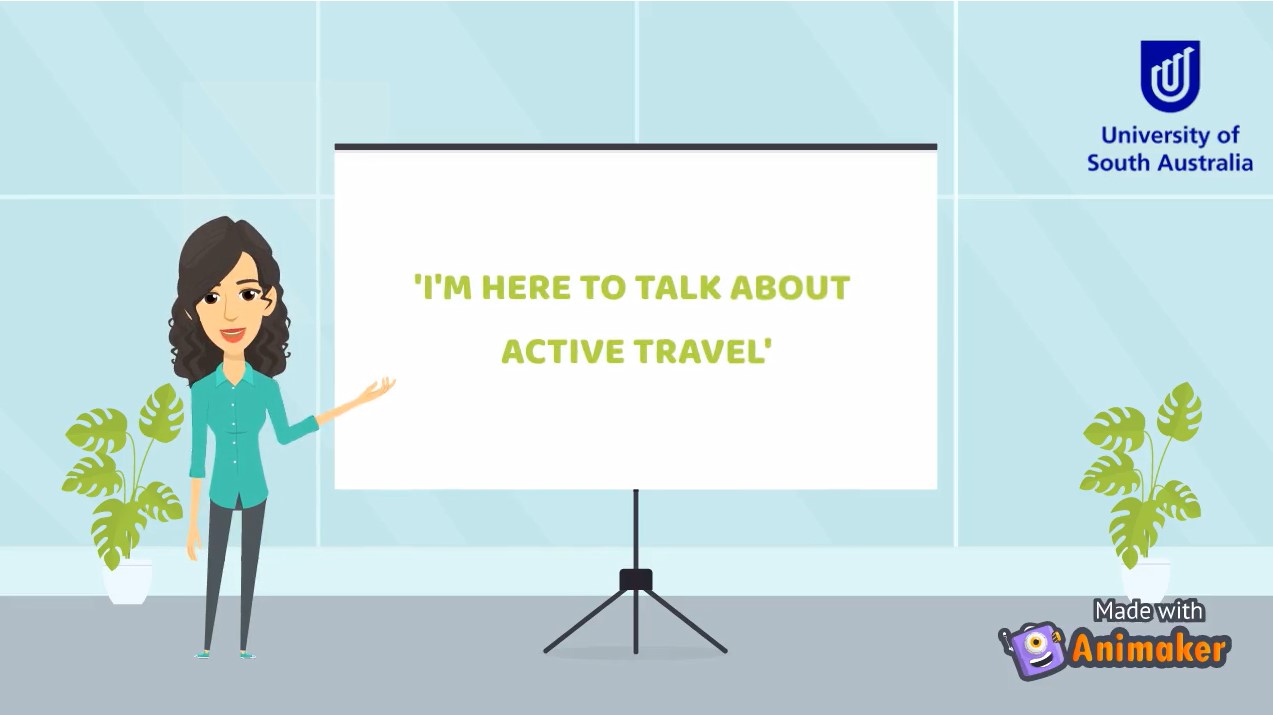
Offering an environmental physiotherapy project in a health promotion course
Introduction
The undergraduate Bachelor of Physiotherapy (Honours) program at the University of South Australia is 4 years in duration. Final year students study a Health Promotion course in their first or second semester. Within the course, students learn the concepts and theory of health promotion then undertake a project in groups of 2-3 students to apply this knowledge in an industry setting. Projects are offered by different industry partners to the University with many projects required each year to be allocated to a cohort of approximately 130 students. Sometimes projects are offered by physiotherapy program staff with the university as the ‘industry stakeholder’ and staff as ‘industry supervisor’. An example of a project I previously supervised was promoting cultural safety for international students in the physiotherapy program.
This project arrangement provides an opportunity to integrate environmental physiotherapy to the health promotion projects on offer to students. While not all students can be involved in one project, listing an environmental physiotherapy topic on offer does raise awareness of the topic in the cohort and provide an opportunity for one group of students to have an in-depth experience of planning, acting and evaluating in this field of the profession. Together with my academic colleague Rose Boucaut, we offered our first project integrating environmental physiotherapy with health promotion in 2021, focused on Active Transport (Toner et al 2021).
Project Design
The aim of the project was to promote Active Transport practices to staff and students in the Physiotherapy program at UniSA. After developing their project proposal, the student group had 5 weeks to implement the project and develop an evaluation plan. As industry supervisors, we met with the student group weekly to express our wants and needs for the project, answer questions they had about the project direction, and facilitate any access they needed to university data, staff or other students. The student group had control over the project management and resource development.
The student group identified the following project stages mapped them to principles of health promotion:
- Understanding topic via brief literature review
- Surveying the target population to identify key demographics and current enablers and barriers to them achieving active transport to and from campus
- Using collected information from stages 1 and 2 to develop recommendations for promoting active transport
- Developing and distributing promotion material to facilitate active transport in target population
- Developing an evaluation plan for the effectiveness of health promotion strategy.
Students were assessed on their written project proposal and final project report by the course coordinator. As supervisors, we assessed each student’s ability to provide an effective outcome and established whether the student behaved professionally, safely, confidentially and ethically during the project. There was also a separate written assessment task for the course which required students to apply health promotion theory to their project activity.
Project outcomes
The student group created two resources to promote Active Transport to physiotherapy program staff and students. A short, animated video promotes evidence-based benefits of active travel and different active transport options. The video is supported by a printed resource giving specific tips for making active travel easier to and from the City East campus. This includes locations of campus bike storage, campus security escorts, walking and bike trails to campus, and goal setting tools. The resources have already been shared with physiotherapy program staff at their regular meeting and will be shared with students at orientation events. The resources will be made available to a wider audience of students and the public through the physiotherapy program’s social media networks. The University marketing department is liaising with student support services about promotion to a wider student cohort on campus.
Student and supervisor experience
The student group for this project was Lauren Pike and Erin Watson. They successfully completed their physiotherapy studies at the end of 2021 and are now registered physiotherapists working in South Australia. At the end of the project, they shared ‘We are excited to continue advocating for more active lifestyles and using our ability as physiotherapists to contribute to environmental issues’.
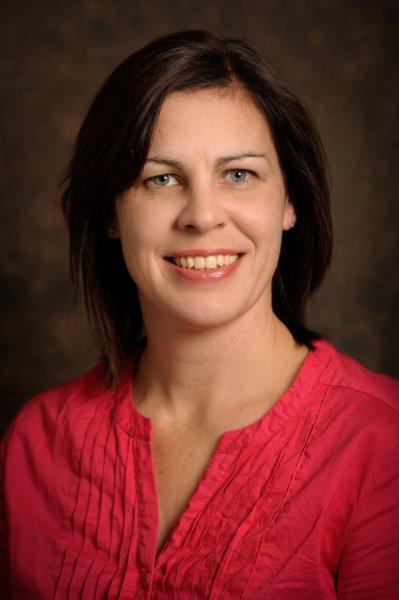
Caroline Fryer (PhD)
Senior Lecturer, University of South Australia
Dr Caroline Fryer is a physiotherapist and Senior Lecturer in the Bachelor of Physiotherapy (Honours) program at the University of South Australia. Caroline is committed to building the capacity of physiotherapists as ethical and professional practitioners. With colleagues, Caroline actively researches ethical issues for physiotherapists worldwide and investigates ways to train physiotherapy students to be culturally safe in their practice.
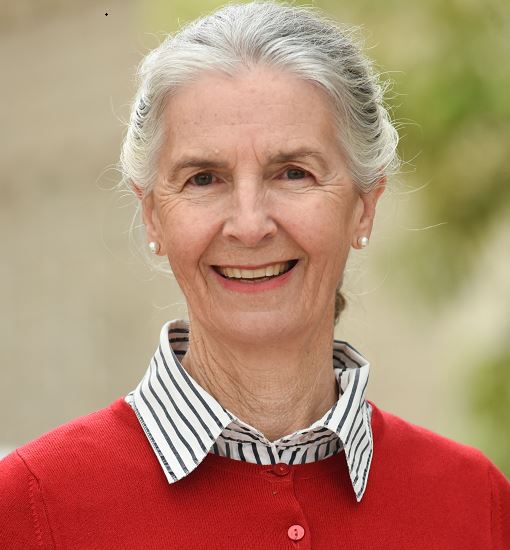
Dr Rose Boucaut (Ed D, MHSc)
President of WorldPT - IFPTOHE
Rose Boucaut is President of the International Federation of Physical Therapists working in Occupational Health and Ergonomics, a subgroup of World Physiotherapy. Rose is a Specialist Occupational Health Physiotherapist (as awarded by the Australian College of Physiotherapists, 2008). With a Doctorate of Education and Master of Public Health, her teaching role includes coordination of the final year subject Work Health and Safety Practice at the University of South Australia.
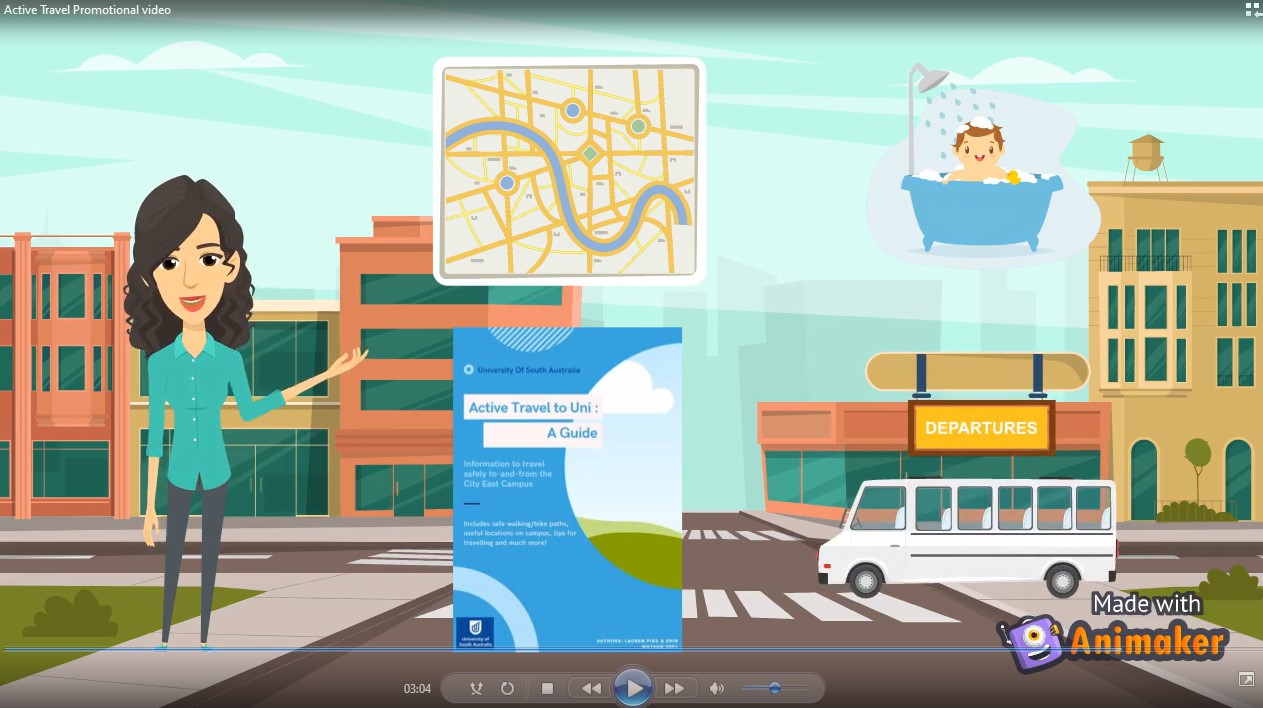
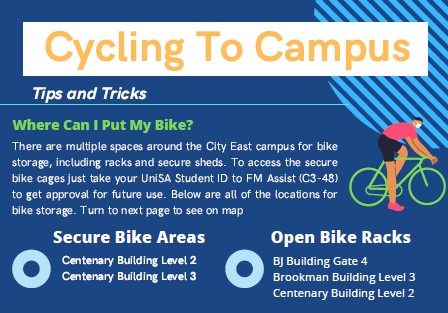
The students received personal recognition and thanks from the physiotherapy program and Allied Health unit staff for the resources they developed. They also gained experience of promoting their work outside of the University with a video shared to the IFPTOHE website (World Physiotherapy subgroup for physical therapists working in the area of occupational health and ergonomics), a blog post to be shared on the EPA website, and they have been invited to talk with students at The Arctic University of Norway about the project. These are all experiences that can inspire and strengthen their capacity to be environmentally active health practitioners and can boost their professional resumes.
As industry supervisors, Rose and I value the health promotion project as an opportunity to raise awareness and knowledge of environmental physiotherapy in the program at the University of South Australia, and to further educate ourselves about environmental physiotherapy with insights we gain from students during the project.
Future plans
Multiple projects can be offered in the health promotion course so there is great opportunity to continue integrating environmental physiotherapy into the existing course. The projects do need to be supervised by people who are interested and have the capacity to be involved. The role of ‘project supervisor’ is voluntary so has no remuneration for industry partners or direct teaching workload allocation for university staff. The ‘rewards’ for the role are the experience and insights we gain from the students and the use of the project outcomes produced by the students.
This year, we are supervising a student project to promote Active Transport to clients attending the Physiotherapy Clinics at the University. Another academic colleague, Katrina Li, has joined the supervisory team. There is great potential for future projects to develop further strategies to promote Active Transport and target different community groups. Future project topics with industry partners could target sustainable use of resources by clinic staff, or safe exercise options for physiotherapy clients during heatwave conditions (becoming more common in Australia with climate change), or another topic combining environmental physiotherapy and health promotion that a health professional in the community would like realised.
Resources
Toner, A., Lewis, J.S., Stanhope, J., Maric, F. (2021). Prescribing active transport as a planetary health intervention – benefits, challenges and recommendations. Physical Therapy Reviews. https://doi.org/10.1080/10833196.2021.1876598
Get in touch
🇬🇧 We would love to hear from you and continue the conversation about our teaching initiatives. If you have any feedback, questions or ideas that you would like to share with us, please contact Dr Rose Boucaut via email or use the comment form below.

0 Comments